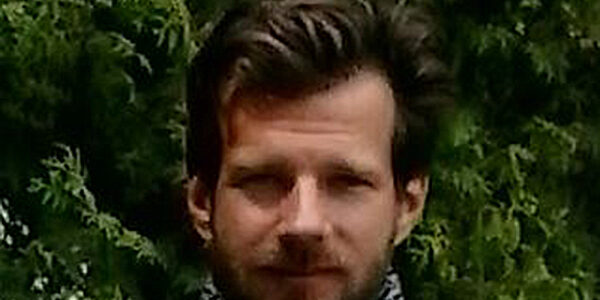
Maroš Krivý‘s (Head of the Urban Studies Department) research examines urbanism from historical and contemporary perspectives and is situated at the intersections of urban political economy/ecology and architectural history. There are three overlapping strands of his research:
- platform urbanism, cybernetics and systems thinking
- Krivy, M. (forthcoming): “The Unbearable Lightness of ‘Complexity’,” Perspecta 53: Onus
- Krivy, M. (forthcoming): “Platform Urbanism and Knowledge-Power,” in M. Hodson et al. (Eds.), Urban Platforms and the Future City: Transformations in Infrastructure, Governance, Knowledge, and Everyday Life (London: Routledge)
- Krivy, M. (2018): “Towards a Critique of Cybernetic Urbanism: The Smart City and the Society of Control,” Planning Theory 17, 1 (2018), 8–30
with S. Hochhäusl, T. Lange, et al., “Architecture and the Environment,” Architectural Histories 6, 1 (2018), 1–20
- socialist urbanism and the housing question
- Krivy, M. (2020): “Faceless Concrete Monsters, c. 1990,” in K. Cupers, H. Mattsson and C. Gabrielsson (Eds.), Neoliberalism on the Ground: Architecture and Transformation from the 1960s to the Present (Pittsburgh: University of Pittsburgh Press)
- Krivy, M. (2019): “Automation or Meaning? Socialism, Humanism and Cybernetics in Etarea,” Architectural Histories 7, 1, 1–17
- Krivy, M. (2019): “Humanizing the Living Environment and the Late Socialist Theory of Architecture,” in V. Kulić (Ed.), Second World Postmodernisms: Architecture and Society under Late Socialism, pp. 33–46 (London: Bloomsbury)
- Krivy, M. (2017): “Quality of Life or Life-In-Truth? A Late-Socialist Critique of Housing Estates in Czechoslovakia,” in Á. Moravánszky and T. Lange (Eds.), Re-Framing Identities. Architecture’s Turn to History, 1970-1990. East West Central. Re-Building Europe 1950-1990, Vol. 3, pp. 303–318 (Basel: Birkhäuser)
- political economy/ecology of urban regeneration
- Krivy, M. (2020) “Tracing the Urban Pastoral in Tallinn: Leo Marx, Karl Marx, and Urban Political Aesthetics,” in M. Gandy and S. Jasper (Eds.), The Botanical City, pp. 243–252 (Berlin: Jovis)
- Krivy, M. (2019) “The Smart and the Ruined: Notes on the New Social Factory,” Thresholds 47, 75–90
- Krivy, M., Ma, L. (2018), “The Limits of the Livable City: From Homo Sapiens to Homo Cappuccino,” Avery Review 30
Keiti Kljavin’s (visiting lecturer at the department of urban studies) research encompasses various fields related to space thus yielding a variety of results depending on the particular form of cooperation. The focus is farther from the capital Tallinn and its nearby regions, primarily on urban and rural environments marked by disparities in planning and strategic development. The key topics include shrinking towns, housing and participatory planning. The outputs of such works include, for instance, consultation, urban space interventions, spatial plans and vision plans, studies based on spatial data, various participatory and co-creation projects, events etc. The aim of all the urban studies practices is to enhance and develop the theoretical conceptualisation of urban environment and integrate the actual stakeholders, situations and current local challenges into the instruction both in theory and in practice.
Studies in 2019-2020:
- Preparing the instructions for the Ministry of Finance project “Kahaneva rahvastikuga piirkondades probleemsete korterelamute elanike ümberasustamine ja kasutusest väljalangenud korterelamute lammutamine” and launching a pilot project in the field of housing in Kohtla-Järve (Linnalabor)
- “Europeanisation Through Repair” (Tartu University)
- Naissaare Development Plan 2019-2029 (Linnalabor)
- Antsla Spatial Plan (2019, Linnalabor)
- Narva perception study (2019, in cooperation with SPIN Unit)
